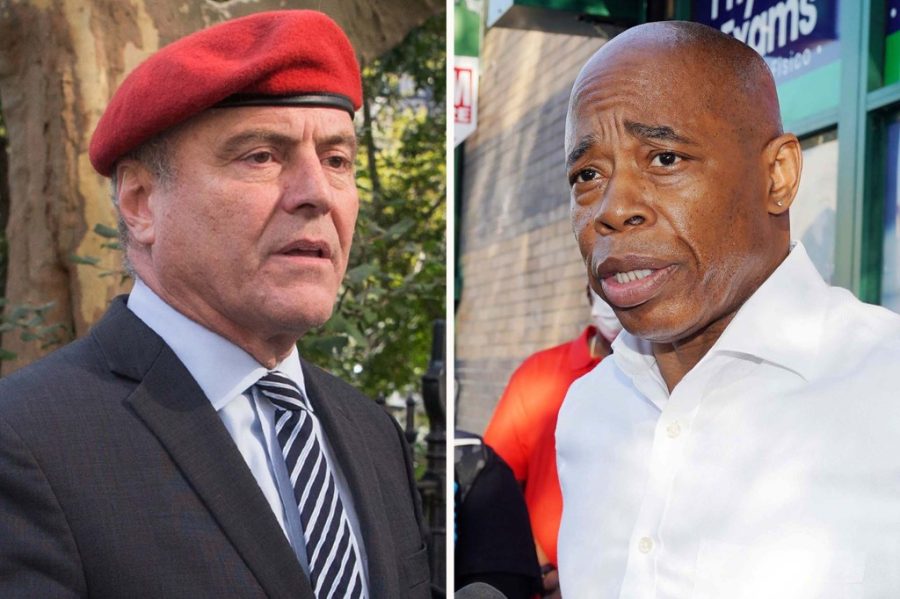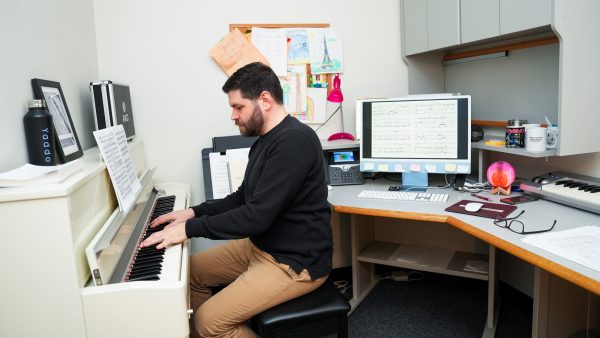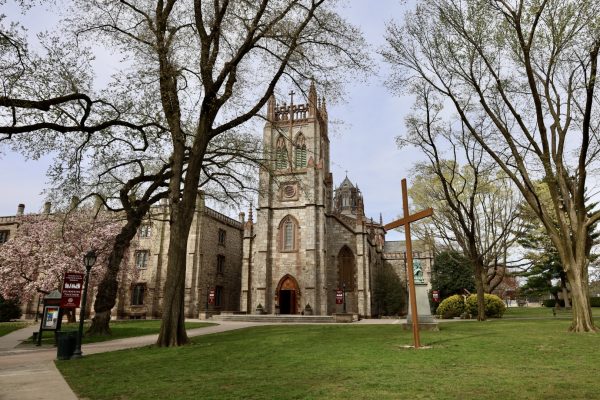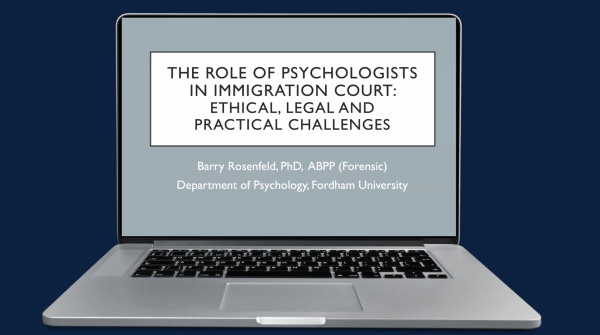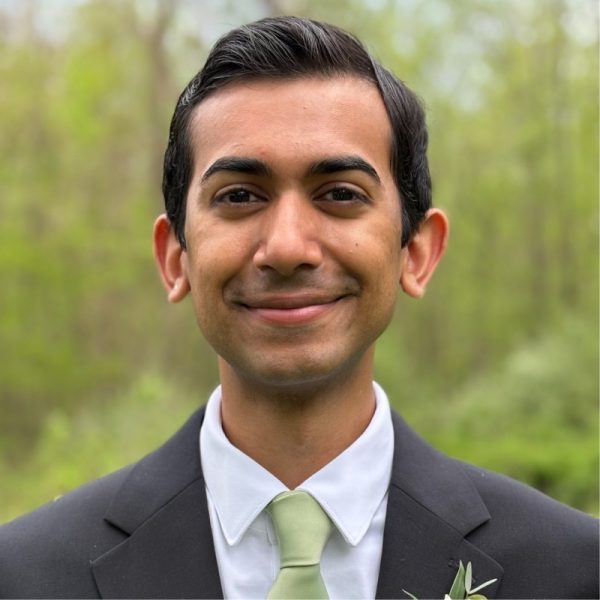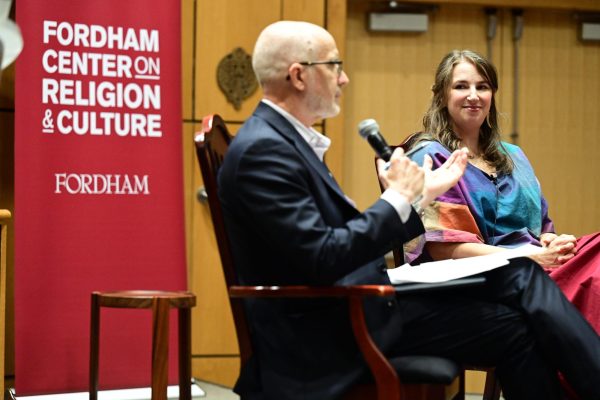NYC Mayoral Candidates Adams and Sliwa Face Off in First Debate
On Wednesday, Oct. 20, the two leading New York City mayoral candidates faced off for the first time during an hour-long debate. The debate was broadcast on News 4 and moderated by News 4 anchor David Ushery, News 4 government affairs reporter Melissa Russo, Telemundo 47 anchor Allan Villafaña and Politico City Hall Bureau Chief Sally Goldenburg.
The Democratic candidate is Eric Adams, the current borough president of Brooklyn and a retired police officer from the NYPD. Republican candidate Curtis Sliwa is a talk show host and the founder of the Guardian Angels, a New York City nonprofit focused on unarmed crime prevention.
Currently, Adams has a significant lead over Sliwa in the race to be New York City’s next mayor. According to a poll released Monday, Oct. 25 by PIX11, NewsNation and Emerson College, Adams has support from 61% of likely voters. Sliwa is polling around 25%.
Adams is expected to win the general election, as 56% of New Yorkers identify as Democrats while only 25% of city residents identify as Republicans, according to Pew Research Center. If elected, Adams would be the second Black mayor ever to be elected in New York City.
Though polls heavily favor Adams, last week’s debate still provided an opportunity for voters to see the two candidates face off directly over this election’s most pressing issues, including vaccine mandates, public safety, economic recovery and responding to climate change.
One of the first issues the candidates disagreed on was the recent vaccination mandate imposed on all municipal workers in New York City. The decision, which requires workers to get vaccinated or lose their jobs, has proved controversial, with the city’s largest police union suing the city over the mandate.
Adams said in the debate that he “believes the mayor’s action was correct” but said he “would’ve handled it differently” and worked more with unions on the decision. Sliwa, on the other hand, disagreed with the mandate. “We don’t have enough police officers as it is,” said Sliwa. “We should never fire people for that reason.”
The two candidates also butted heads over the future of the NYPD. Sliwa advocated for increasing the size of the city’s police department. “I’m the only candidate on this stage that has said I will hire more police officers,” said Sliwa.
Adams, on the other hand, highlighted his own experience as a member of the NYPD. While Adams said he is not “a critic of public safety,” he advocated for better police practices. “I will have the backs of my police officers,” said Adams. “But if you decide not to understand the nobility of public protection, you won’t serve in my department.”
The candidates also discussed their views on NYPD officers’ use of stop-and-frisk. Sliwa said he believes the practice should be constitutional but criticized the way the policy targeted New Yorkers of color in the past. Adams pointed to his own experiences of assault at the hands of the NYPD as a teenager. “I never call for aggressive police tactics,” said Adams. “I call for appropriate police tactics.”
Adams also criticized his opponent for fabricating crimes during his work as part of the Guardian Angels, which Sliwa has admitted to in the past. “He made up crimes, New Yorkers. That in itself is a crime,” said Adams.
Sliwa criticized Adams for carrying a gun and called on him to promise not to carry one if elected mayor. Adams did not respond to this call.
The candidates also discussed bringing new business into New York City if elected mayor. Adams said he would support suspending fines on small businesses, adopting universal child care and turning the city into a hub for cybersecurity and biotechnology. Sliwa said he wants to repurpose empty office and retail space into affordable housing.
Adams and Sliwa disagreed over how the city should prepare for severe weather events caused by global climate change in the future. Adams advocated for adopting an emergency response system similar to the city’s terrorism response procedures when responding to weather emergencies like the recent flooding caused by the remnants of Hurricane Ida hitting the city.
“We were caught off guard. That’ll never happen again,” said Adams.
Sliwa said he wants to invest in seawalls and to designate flood zones around the city. Adams criticized this approach, calling it an “antiquated method” to respond to a “modern problem.”
To wrap up the debate, moderators asked both candidates to call on New Yorkers that moved away during the pandemic to return to the city in the near future.
Adams pointed out the exciting culture and art in New York City, as well as its transportation infrastructure and diversity. “You’ll be bored in Florida. You’ll never be bored in New York City,” he said.
Sliwa praised New York City’s natural beauty and said he wanted to raise the parks’ budget. “We have the most marvelous parks — in the outer boroughs and, naturally, Central Park — of any city I’ve ever been in the world.”
Overall, the candidates’ dynamics were respectful, though Sliwa did throw several jabs towards Adams over his perceived friendliness with the city’s “elites.” Adams, in turn, criticized Sliwa for dishonesty and asked that moderators enforce the time constraints placed on each candidate for their responses to questions.
Early voting opened in New York City on Saturday, Oct. 25, and will be available to city residents until Sunday, Oct. 31. Election Day is Tuesday, Nov. 2.
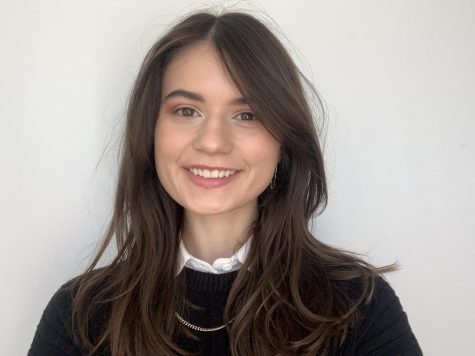
Abbey Delk is a junior from Wheeling, West Virginia, double majoring in English and journalism and minoring in film & television. Her career at the...





































































































































































































